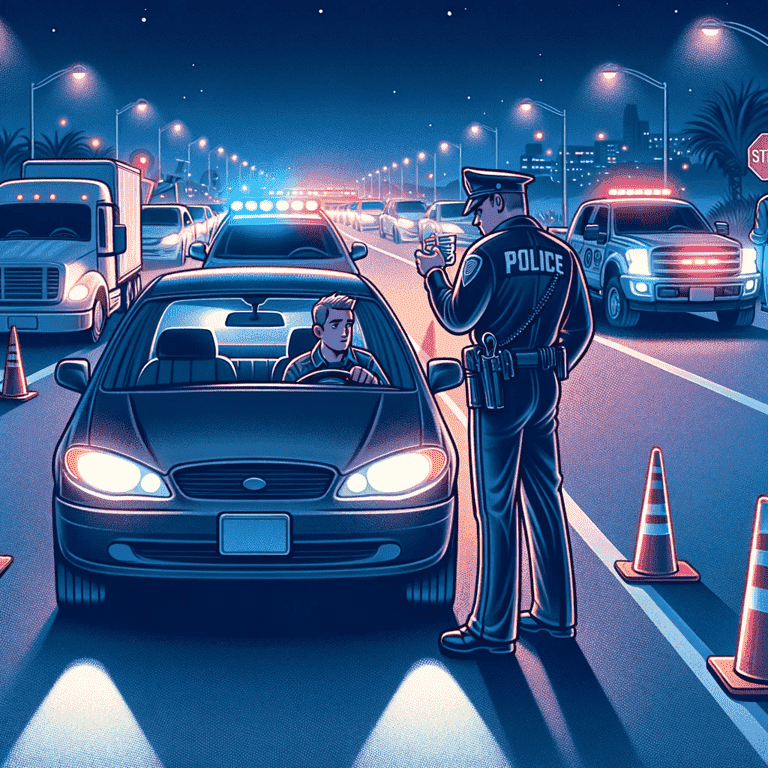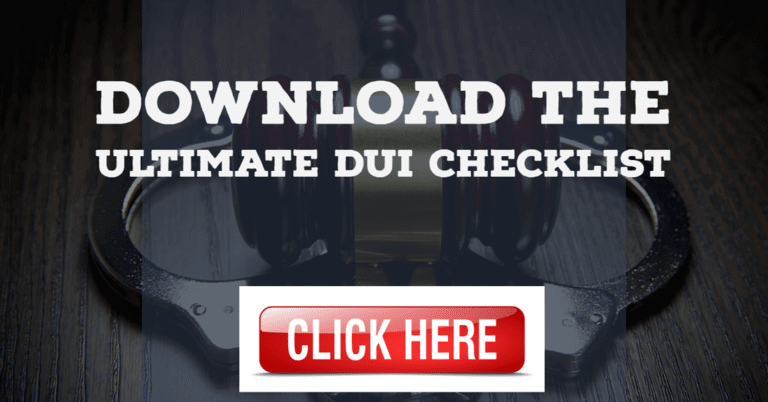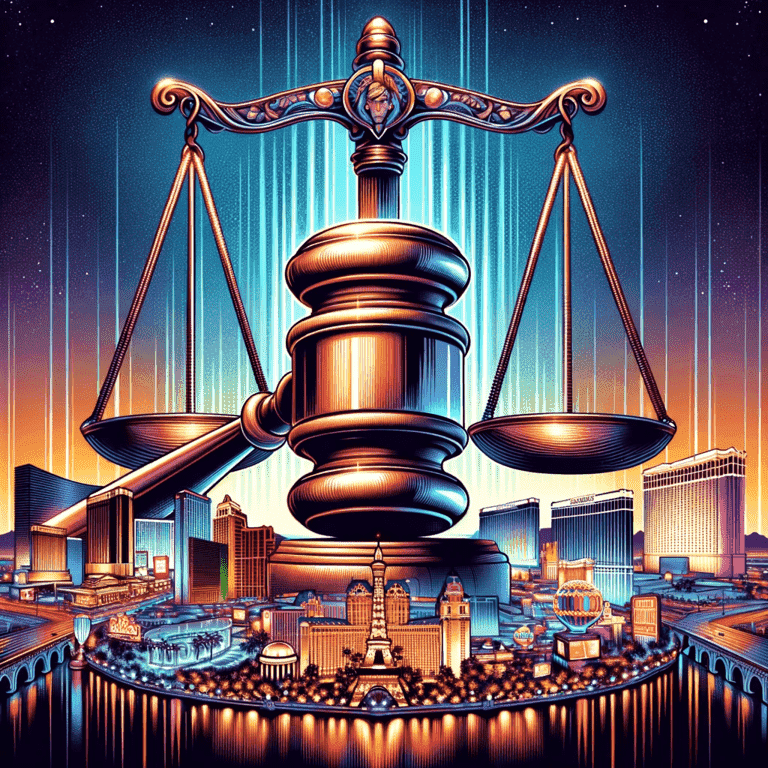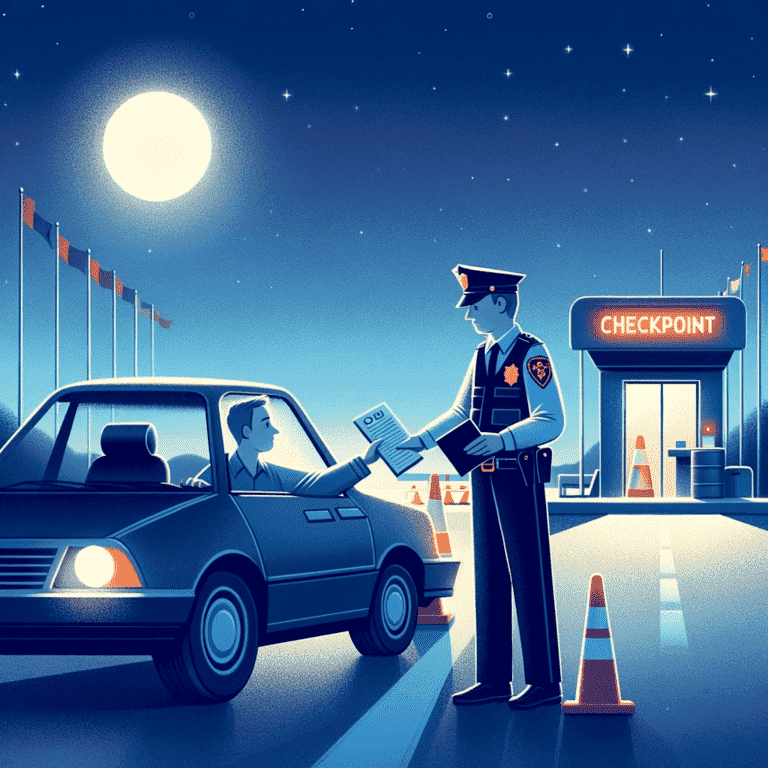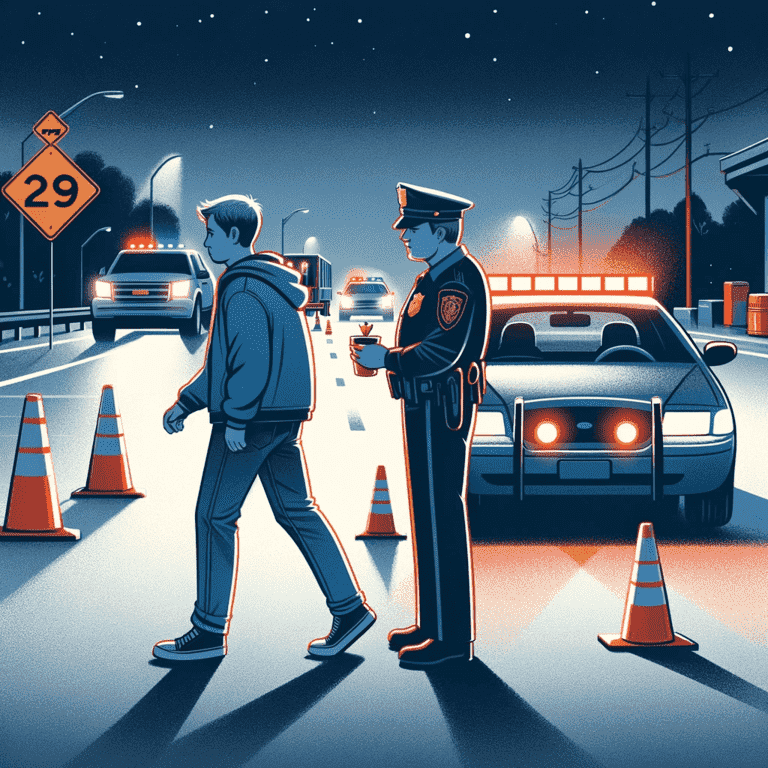Welcome to “Navigating Las Vegas DUI Checkpoints: A Complete Guide.”
Whether you’re a resident of Las Vegas or just visiting, understanding DUI checkpoints is essential for every driver.
In Las Vegas, the nightlife is vibrant, and the roads are always bustling.
This makes knowing about DUI checkpoints a legal necessity. It’s also part of being a responsible community member.
Our guide aims to provide clear, easy-to-understand information about DUI checkpoints in Las Vegas. We aim to help you stay informed and safe.
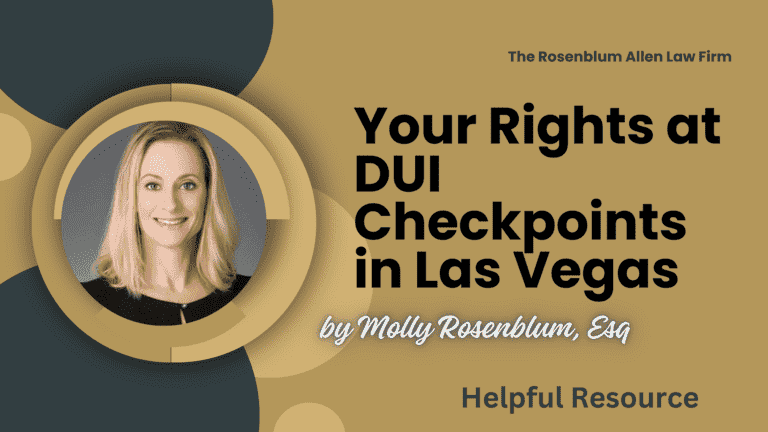
Understanding DUI Checkpoints
Definition of a DUI Checkpoint
DUI checkpoints, also called sobriety checkpoints, are specific locations. Law enforcement officers stop vehicles there to check if drivers are impaired by alcohol or drugs. It’s like a pop-up inspection station. Officers briefly examine drivers for signs of intoxication. These checkpoints are a critical part of efforts to reduce drunk driving incidents.
Legal Basis for DUI Checkpoints in Nevada
In Nevada, DUI checkpoints are perfectly legal and backed by state and federal laws. The U.S. Supreme Court has recognized them as a valid method for enhancing road safety. The Court stated that the safety benefits outweigh the minimal intrusion. In Nevada, these checkpoints must adhere to specific legal requirements. For example, they must be announced in advance and conducted to minimize inconvenience to drivers.
Objectives of DUI Checkpoints
The main goal of DUI checkpoints is to deter drunk driving by increasing the perceived risk of arrest. They don’t just catch law violators. They also educate the public and prevent accidents caused by impaired driving. Law enforcement agencies aim to create a safer driving environment for everyone in Las Vegas by having these checkpoints.
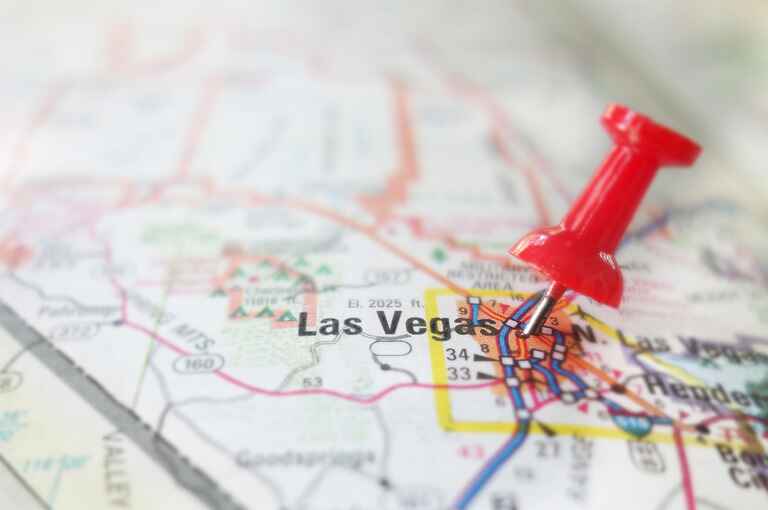
Locations and Frequency of DUI Checkpoints in Las Vegas
Typical Locations for DUI Checkpoints in Las Vegas
DUI checkpoints in Las Vegas are often set up in areas with a history of incidents or high traffic volume. These include significant intersections. They are entry points to popular nightlife areas and roads leading out of entertainment districts. The exact locations can vary. They are strategically chosen to maximize effectiveness and safety.
Factors Influencing the Selection of Checkpoint Locations
Law enforcement considers several factors when deciding where to set up a DUI checkpoint. This includes statistical data on past DUI arrests and traffic patterns. It also covers the logistical aspects of setting up a checkpoint in a particular area. The aim is to choose locations where the checkpoints can most effectively deter drunk driving.
Frequency and Timing of DUI Checkpoints in the City
The frequency of DUI checkpoints in Las Vegas can vary. They are more common during holidays, weekends, and significant city events. Drinking is more prevalent at these times. Typically, they are conducted during the evening and late-night hours, as this is when impaired driving is most likely to occur. However, law enforcement strategies and available resources may change the timing and frequency.
In the following sections, we will dive into what happens at these checkpoints, your rights, and how to navigate them safely and legally. Stay tuned for more valuable insights to keep you informed and prepared.
Your Rights at a DUI Checkpoint
Explanation of Drivers’ Rights at DUI Checkpoints
When you approach a DUI checkpoint in Las Vegas, it’s important to remember that you have rights. First, you have the right to remain silent. This means you don’t need to answer questions about where or whether you’ve been drinking. But, you must show your driver’s license, registration, and proof of insurance. Having these documents ready is a good idea to avoid any unnecessary delay.
How to Interact with Law Enforcement
Interacting with officers at a DUI checkpoint should be straightforward. Stay calm, be polite, and follow their instructions. If an officer asks you to pull over to a designated area for further questioning or testing, it’s essential to comply. Remember, being cooperative doesn’t mean you have to waive your rights. You can still decline to answer specific questions.
What Law Enforcement Officers are Permitted to Do
Officers at DUI checkpoints are allowed to stop vehicles briefly. They look for signs of intoxication and ask basic questions. If they suspect you are under the influence, they may ask you to perform sobriety tests. However, they can’t search your car without your consent, probable cause, or a warrant.
What Happens at a DUI Checkpoint
Step-by-Step Process of a DUI Checkpoint Stop
At a DUI checkpoint, an officer will typically briefly explain the purpose of the stop. They’ll check your documents and may ask a few questions. You’ll be allowed to go quickly if there are no signs of impairment. It’s like a fast-paced, roadside meet-and-greet. The added purpose is ensuring road safety.
Types of Tests and Screenings Conducted
Officers who suspect impairment may ask you to perform field sobriety tests. These can include walking straight, standing on one leg, or following an object with your eyes. In some cases, they may also use breathalyzers to check your blood alcohol content (BAC).
Possible Outcomes for Drivers
If you pass the tests and screenings, you’re free to go. However, if you fail or refuse to take the tests, you may be arrested for DUI. It’s important to know that refusing a breathalyzer test when suspected of DUI can result in license suspension in Nevada.
Avoiding DUI Checkpoints
Legal Ways to Avoid a DUI Checkpoint
It’s legal to turn around and avoid a DUI checkpoint as long as you do so without breaking any traffic laws. This means no illegal U-turns or sudden swerves. If you see a checkpoint ahead and decide to avoid it, do so safely and legally.
Consequences of Evading a DUI Checkpoint
Trying to avoid a DUI checkpoint improperly can lead to being stopped for a traffic violation. This can draw more attention to you and might lead to further scrutiny by law enforcement. It’s always better to approach checkpoints calmly and follow the rules.
Understanding your rights and the procedures at DUI checkpoints can make the experience less stressful. Remember, these checkpoints are designed for everyone’s safety, including yours. In the following sections, we will explore the penalties for DUI in Las Vegas. Then, we will provide tips for navigating DUI checkpoints safely. Stay informed and stay safe!
Penalties for DUI in Las Vegas
Driving under the influence (DUI) is a serious offense in Las Vegas, and the penalties can be pretty severe. If you’re found guilty of DUI, the consequences depend on how many times you’ve been caught and the specifics of your case. Here’s a breakdown:
For a first-time DUI, you might face fines, a driver’s license suspension, and jail time. You’ll also likely be required to attend a DUI school and might be ordered to do community service.
Second Offense: If you get a second DUI within seven years of the first, the penalties increase. You’re considering longer jail time, higher fines, and a longer license suspension period. There might also be mandatory attendance in treatment programs.
Third and Subsequent Offenses: These are treated even more seriously. A third DUI within seven years can lead to a felony charge. This means potentially years in prison, hefty fines, and a long-term or permanent driver’s license revocation.
Your vehicle could be impounded in all cases, and you might have to install an ignition interlock device in your car. This device prevents the vehicle from starting if it detects alcohol on your breath.
Remember, the consequences of DUI go beyond legal penalties. This has a significant personal and social impact. It can damage your reputation, career, and relationships.
Tips for Navigating DUI Checkpoints Safely
Approaching a DUI checkpoint doesn’t have to be stressful. Be prepared and understand what to expect. Here are some tips to navigate these checkpoints safely:
Stay Calm: Officers are trained to detect nervousness or erratic behavior. Just stay calm and remember they’re doing their job to keep the roads safe.
Have your documents ready. Keep your driver’s license, registration, and insurance information easily accessible. Fumbling around for these can raise suspicion.
Be Polite and Cooperative: Being rude or uncooperative can escalate the situation. Answer the officer’s questions briefly. Remember, you can remain silent on specific questions.
Know Your Rights: You can refuse specific tests. This might lead to legal consequences. Understanding your rights and the potential outcomes of your choices is essential.
To navigate a DUI checkpoint, avoid driving after drinking. If you plan to drink, arrange for a designated driver. Use public transportation or get a ride-sharing service.
Dealing with Arrest at a DUI Checkpoint
If you find yourself being arrested at a DUI checkpoint, it’s crucial to know how to handle the situation:
Stay calm and compliant. Resisting arrest or becoming combative will only worsen the situation.
Invoke Your Right to an Attorney: You can consult with an attorney. It’s a good idea to do this before answering any questions.
Remember Your Rights: You have the right to remain silent and refuse to take field sobriety tests. However, refusing a breathalyzer test can lead to automatic license suspension in Nevada.
Be Prepared for the Process: An arrest doesn’t always mean you’ll be convicted. Prepare for the legal process ahead. Consider seeking the services of a defense attorney experienced in DUI cases.
Facing a DUI checkpoint can be less intimidating when you’re informed and prepared. Remember, these checkpoints are set up for everyone’s safety. Stay safe, make responsible choices, and you’ll have nothing to worry about at a DUI checkpoint. Stay tuned for our final section. We’ll provide resources and support for those impacted by DUI incidents.
Resources and Support
If you or someone you know is dealing with issues related to DUI, there are several support systems. Options are available to help you, whether you’re seeking:
legal advice,
educational material,
or emotional support.
Local Resources for Information on DUI Checkpoints
The Las Vegas Metropolitan Police Department (LVMPD) provides information about DUI laws and checkpoint locations. Their site and social media platforms are excellent sources for updates on upcoming DUI checkpoints.
The Nevada Department of Motor Vehicles (DMV) website offers detailed information on Nevada DUI laws, penalties, and procedures.
Community Legal Services in Las Vegas offers free or low-cost legal consultations. They are for those facing DUI charges.
Support Systems for Those Impacted by DUI Incidents
Support Groups: Groups like Alcoholics Anonymous (AA) offer support to individuals who are struggling with alcohol dependency.
Counseling Services: Professional counseling can help individuals and families affected by DUI-related incidents. Many community centers and health clinics in Las Vegas offer counseling services.
Educational programs offer valuable information on the dangers of impaired driving. They also teach how to make safer choices.
Remember, seeking help is a sign of strength, not weakness. If you’re struggling with the aftermath of a DUI incident or want to prevent one, these resources can be a valuable asset.
Why You Haven’t Hired a Las Vegas DUI Attorney Yet
Watch this short video to take the next big step toward defending yourself against your DUI charge.

Breaking It All Down for You
Navigating Las Vegas DUI Checkpoints doesn’t have to be a daunting experience. By understanding DUI checkpoints, your rights, and how to interact with law enforcement, you can ensure your experience is as smooth and stress-free as possible.
Always remember the importance of driving responsibly. Also, consider the severe consequences of driving under the influence. We hope this guide has provided valuable insights and resources.
They will help you stay informed and safe on the roads of Las Vegas. Drive safe, stay informed, and respect the law – it’s the best way to protect yourself and others on the road.

Frequently Asked Questions
Can a DUI Checkpoint Be Announced in Advance?
Yes, often, law enforcement agencies in Las Vegas announce DUI checkpoints in advance. This information is often shared through local media. It is also shared through police departments’ social media channels. The announcement can include the date and general area. It might not specify the exact location.
What Should I Do If I’m on Medication and Asked to Perform Sobriety Tests?
Inform the officer immediately if you’re on medication that could affect your sobriety test performance. It’s helpful to carry documentation, such as a prescription or a doctor’s note. This can validate your claim. Remember, honesty and transparency at a checkpoint can be crucial.
Are DUI Checkpoints Only for Alcohol Impairment?
No, DUI checkpoints are not limited to checking for alcohol impairment. Law enforcement officers are also looking for impairment due to drugs. This includes prescription medications, over-the-counter medicines, and illegal substances.
How Long Can I Be Detained at a DUI Checkpoint?
The duration of the stop at a DUI checkpoint is generally short, often just a few minutes. However, if officers have reason to suspect impairment, they may detain you longer. This is to conduct sobriety tests. The key is that the stop should only last as long as necessary to achieve its purpose.
What Happens If I’m a Passenger in a Car Stopped at a DUI Checkpoint?
As a passenger, you are not required to provide identification. You must only do so if there’s reasonable suspicion of a crime. However, staying calm and cooperative is beneficial. If the driver is suspected of DUI, passengers may be asked to arrange alternative transportation.
Can I Record My Interaction at a DUI Checkpoint?
Yes, you have the right to record your interaction at a DUI checkpoint. It’s allowed as long as it does not interfere with law enforcement duties. To maintain transparency, it’s advisable to inform the officer that you are recording.
What If I’m Driving a Rental Car Through a DUI Checkpoint?
If you’re driving a rental car, the process at the DUI checkpoint remains the same. Ensure you have the rental agreement and personal identification documents ready for inspection.
Can I Refuse to Go Through a DUI Checkpoint?
While you can legally choose to avoid a DUI checkpoint, you cannot refuse to stop if you arrive at one. A checkpoint should be avoided lawfully and safely without violating traffic laws.
Will a DUI Checkpoint Affect My Insurance Rates?
Being arrested for a DUI at a checkpoint and subsequently convicted can affect your insurance rates. DUI convictions generally result in higher insurance premiums.
What Should I Do If I Feel My Rights Were Violated at a DUI Checkpoint?
Document the incident. If you believe your rights were violated at a DUI checkpoint, contact a legal professional. They can advise you on the best action. This may include filing a complaint or pursuing legal remedies.

Glossary
DUI Checkpoint: A specific location where law enforcement officers stop vehicles to check if drivers are impaired by alcohol or drugs, also known as a sobriety checkpoint.
Impairment: A reduction in the ability to operate a vehicle safely due to the effects of alcohol, drugs, or other substances.
Field Sobriety Tests: A series of physical or cognitive tests administered by law enforcement at the roadside to determine if a driver is impaired. Standard tests include the walk-and-turn, one-leg stand, and horizontal gaze nystagmus test.
Blood Alcohol Content (BAC): The alcohol percentage in a person’s bloodstream. In Nevada, it’s illegal to drive with a BAC of 0.08% or higher.
Ignition Interlock Device: A device installed in a vehicle that requires the driver to pass a breathalyzer test before the engine will start. It is often required after a DUI conviction.
Probable Cause: A reasonable basis for believing a crime may have been committed. In the context of DUI, it refers to an officer’s belief that a driver is impaired.
License Suspension: The temporary removal of a driver’s license by the authorities. Happens often after a DUI arrest or conviction.
Sobriety Checkpoint Announcement: The public notification of a planned DUI checkpoint is often shared through media or police channels.
Legal Consent: Agreement to allow something to happen. At DUI checkpoints, drivers may consent to searches or additional tests.
Prescription Medication: Medicines that a healthcare provider legally prescribes. Some prescription medications can impair driving ability.
Passenger Rights: The rights of individuals in a vehicle other than the driver. At a DUI checkpoint, passengers typically have the right to remain silent and may not have to provide identification.
Detainment Duration: The length of time a person is held or delayed by law enforcement. At DUI checkpoints, this is usually brief unless there is suspicion of impairment.
Rental Agreement: The contract between a rental car company and the person renting the vehicle. It should be carried when driving a rental car.
Legal Remedies: Actions that can be taken within the legal system to address a perceived wrong or violation of rights. This can include filing complaints or lawsuits.
Additional Resources for You

For those navigating the complexities of DUI law in Las Vegas, our lead attorney, Molly Rosenblum, Esq., has meticulously developed a suite of resources to guide you through these challenging times. These resources are tailored to address various aspects of DUI law, ensuring comprehensive support for your specific needs:
- Las Vegas DUI Lawyer: Get expert legal representation and advice specific to Las Vegas DUI cases. Learn more.
- DUI Consequences: Understand the potential repercussions of a DUI conviction. Explore the details.
- DUI License Suspension: Find out how a DUI can impact your driving privileges. Read more.
- DUI Plea Bargain: Discover how plea bargaining can play a role in your DUI case. Dive into the specifics.
- Drug DUI: Learn about the nuances and legal implications of driving under the influence of drugs. Get informed.
- DUI Defense Strategies: Uncover various strategies that can be employed in your defense. Study the strategies.
- First-Time DUI: Gain insights into what to expect and how to navigate a first-time DUI offense. Understand the process.
- Second-Time DUI: Grasp the heightened stakes and complexities of facing a second DUI charge. Learn more.
- Marijuana DUI: Delve into the specific considerations and legal landscape of DUI involving marijuana. Explore the nuances.
- Nevada DUI Law: Get a comprehensive understanding of DUI laws specific to Nevada. Read the specifics.
- Las Vegas Legal Alcohol Limit: Stay informed about the legal alcohol limits in Las Vegas to avoid DUI charges. Know the limits.
Molly Rosenblum, Esq., and the team are dedicated to providing you with the knowledge and legal expertise needed to navigate the complexities of DUI law in Las Vegas. Whether you’re facing your first DUI charge or dealing with specific circumstances like a drug DUI or license suspension, these resources are designed to equip you with the necessary information and support.

Offsite Resources You May Find Helpful
Here are several offsite resources that offer valuable information related to DUI laws, legal assistance, and related topics. These resources can provide additional insights and support for readers interested in understanding DUI-related issues:
National Highway Traffic Safety Administration (NHTSA): Offers extensive information on road safety, including DUI laws and prevention strategies. NHTSA Website
American Bar Association (ABA): A resource for finding legal help and understanding various aspects of the law, including DUI and traffic laws. ABA Website
Mothers Against Drunk Driving (MADD): A non-profit organization dedicated to ending drunk driving, supporting victims, and preventing underage drinking. MADD Website
Alcoholics Anonymous (AA): Provides support for individuals struggling with alcohol dependence, a crucial aspect in preventing DUI incidents. AA Website
- Students Against Destructive Decisions (SADD): Focuses on youth education and prevention of destructive behaviors such as drunk driving. SADD Website
Governors Highway Safety Association (GHSA): Provides information on state highway safety laws and initiatives, including DUI prevention and enforcement. GHSA Website
These resources can be immensely useful for anyone seeking to broaden their understanding of DUI-related matters, find legal assistance, or access support services.

A Special Message From Our Lead Attorney
Why You Might Need a Lawyer
Molly Rosenblum, Esq

Dear Reader,
Thank you for reading through our comprehensive resources on navigating DUI checkpoints. Thank you for understanding the complexities of DUI laws in Las Vegas. We hope you found the information insightful. We also hope it was helpful in addressing your concerns and questions.
As you navigate these challenging situations, remember that you are not alone. I, Molly Rosenblum, and my team at The Rosenblum Allen Law Firm are here to offer you support and guidance. We understand that dealing with DUI-related matters can be overwhelming. Our goal is to provide you with the expertise and help you need.
I welcome you to schedule a free consultation with us. I’m happy to discuss your specific situation or any questions. You can reach us at (702) 433-2889. During this consultation, we can provide more personalized advice. We can also explore the best legal options for your circumstances.
Thank you once again for trusting us as your resource. We look forward to the opportunity to assist you.
Best regards,
Molly Rosenblum, Esq.

